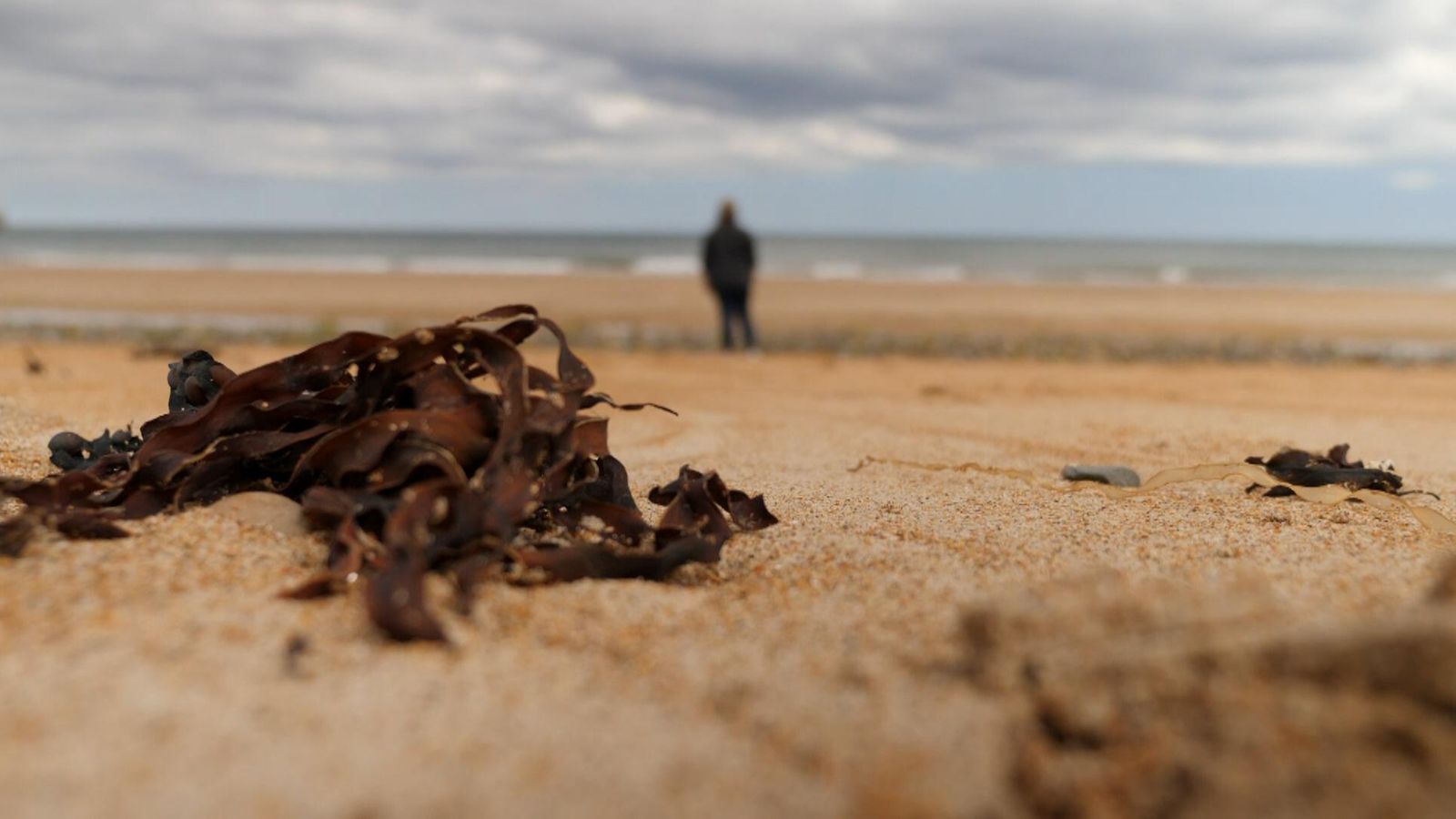Something has gone seriously wrong in the criminal justice system when it comes to rape, according to a major government report.
Senior ministers say they are deeply ashamed that there has been a sharp drop in the number of cases going to court in just five years.
The government has promised to overhaul the way sexual crime investigations are conducted after victims, mostly women, complained of being digitally “strip searched”, made to hand over phones, had their personal lives trawled over and their credibility questioned.
The report details how the case is often damaged during the police investigation, ensuring the victim never sees justice.
The government’s end-to-end Rape Review, which covers England and Wales says: “The numbers make for stark reading… Only 3% of adult rape offences assigned a police outcome in 2019/20 were given an outcome of charged/summonsed.
“This is down from 13% of adult rape offences assigned an outcome in 2015/16.
“Prosecutions and convictions for adult rape have also fallen, by 62% and 47% respectively since 2015/16.”
In a letter signed by Home Secretary Priti Patel, Justice Secretary Robert Buckland and Attorney General Michael Ellis, they say: “These are trends of which we are deeply ashamed.
“Victims of rape are being failed. Thousands of victims have gone without justice.
“But this isn’t just about numbers – every instance involves a real person who has suffered a truly terrible crime.”
It is estimated that there are 128,000 victims of rape (including attempts) per year.
Only 43,000 report the crime to the police, a pitiful 3,000 make it to prosecution and just 2,000 get convictions.
The government has pledged “sweeping reforms” to increase the number of rape cases reaching court while bolstering support for victims.
It aims to return the volumes of cases going to court to at least 2016 levels.
If this is achieved by the end of this parliament it would mean over a thousand more victims would see their cases proceed, although campaigners say this still isn’t enough.
The report found that the reasons for the decline in successful cases include an increase in personal digital data being requested, so called “digital strip searching” which leaves victims without their phones at a time when they need support from contact with friends and family.
It also blamed delays in investigative processes, strained relationships between different parts of the criminal justice system and a lack of specialist resources and inconsistent support to victims.
It says: “We know from the detailed work carried out by victims’ groups that victims have been treated poorly.
“Victims who have reported their rapes are frequently informed that their case will not be taken any further, often without being given any detail or explanation of the reasons why, and many are left feeling unable to deal with the stress and psychological toll of this.”
The report concludes “These statistics demonstrate that the criminal justice system is failing victims of rape and sexual assault.”
Sky News spoke to alleged rape victim ‘Leslie’ who said she went to the police because she wanted “to protect all the other girls”.
But despite two other complainants coming forward she was told there wasn’t enough evidence for the jury.
Leslie said: “Their exact words were, ‘It’s not that we don’t believe you, because we do. Don’t feel bad. But we don’t think the jury would take it to court. They wouldn’t believe it.’
“I felt frozen and my face kind of went into my hands and I just started to cry.”
Another alleged rape victim ‘Kate’ went through two appeal processes before her case was taken up by the Crown Prosecution Service and was initially told a lack of witnesses and no physical injuries were factors in the decision.
Kate said: “There being no witnesses. How many rapes are going to have a witness?
“I think the only thing that made me push through the whole process was that I didn’t want to have to look back at it and think I should have done more.”
Kate’s case has taken three years to get to court.
Several postponements were caused by the pandemic, one due to a lack of court space.
In this instance, Kate was told of the delay the day before the case was due to go ahead.
She said: “I think there’s no other trials that you would be able to logically look at and think it’s reasonable for that to take three years.
“Like if somebody burgled your house or robbed a bank, would they have to wait three years to go to court? Probably not. So, the delays just don’t make sense to me.”
Even pre-pandemic, the median time between sending an adult rape case to crown court and the main hearing taking place was 166 days, compared to 42 days for all crimes.
The government has announced that each part of the criminal justice system will now be held to better account, with performance scorecards on key metrics such as timeliness and victim engagement being published every six months.
The police investigations will be less focused on the victim and instead there will be “robust assessment of suspect behaviour and offending patterns.”
It also states that “no victim will be left without a phone for more than 24 hours, in any circumstances, and our priority is that victims have their own phones returned within this period, with replacement phones being provided in the minority of cases”.
Follow the Daily podcast on Apple Podcasts, Google Podcasts, Spotify, Spreaker
Shadow minister for domestic violence and safeguarding Jess Phillips said: “Rape prosecutions are at a record low. That means rapists and sexual predators are left on our streets.
“Despite the sorry tone of the review in which the government admits to its shame, it falls short of recognising that that it has failed victims of rape on every front by pushing the justice system to the brink of collapse through a decade of cuts to police, courts and the CPS.
“This review was a real opportunity to improve the criminal justice system for victims of rape, and it has missed that opportunity.
“There is not a single penny offered in extra support services, merely a hope that they will exist.
“This is the triumph of hope over experience. The review has offered nothing more, no sustainable funding or additional support.”
The Victims’ Commissioner for England for Wales, Dame Vera Baird, had mixed feelings about the government response.
She said: “We have seen a seismic collapse in rape charging and prosecutions.
“This is a serious and long-running crisis. So, I welcome that ministers have today rightly voiced their shame at this abysmal record and resolved to reverse this downward trend. This is important. Even so, there is no hiding that this review presents some missed opportunities.
“It is disheartening that truly transformative policies, such as the pre-recording of video evidence of intimidated witnesses (Section 28), are to be put off yet again by further consultation, piloting or general delay.
“Similarly, when concerns around digital disclosure deter so many victims from engaging with the criminal justice system, it is disappointing to see a lack of urgency around the provision of independent legal advice to tackle well documented instances of excessive and undue data requests by police and prosecutors.
“There also remain serious concerns around clauses in the Police, Crime, Sentencing and Courts Bill, which will give carte blanche to wholesale phone data downloads.”






















